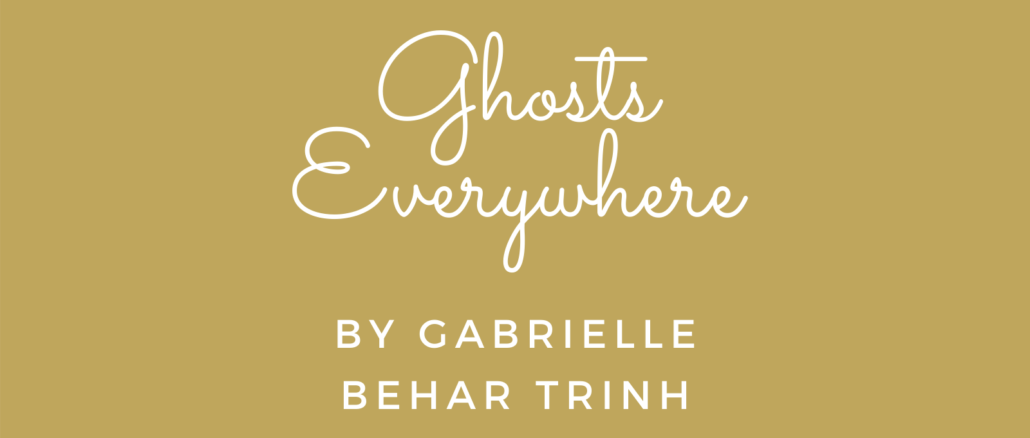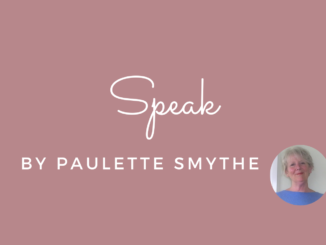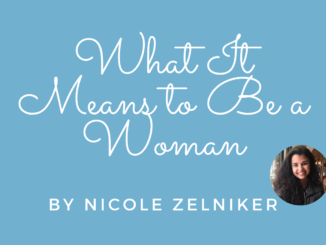
My mother’s eyes remained fixed on the oval window, and the smell of fresh plastic mixed with tray food. Hot aluminum over salted pork and congee, boiled potatoes if you opted for the Western meal—last one for a while, better take it—coated the air and covered rows of thin teal blankets. Identical bodies in warm, yellow reading light. Adults with eyes closed, elderly with eyes wide open, babies who, for the love of God, wouldn’t stop screaming.
It’s funny how not just time but also age and vitality can equalize in space. All of us compressed, stuck there. Three inches in front of our feet and half an armrest—but really, if the plane came crashing, if the emergency bells whistled, if the life vests popped out like puppets, we’d all die together, wouldn’t we? I shut my eyes, prayed I wouldn’t find out. Listened for how the tiny fans swirled in the sky for hours like twinkly stars, coating artificial, recirculated oxygen through the vents in this thing they called a cabin. Stale, and yet, still.
Eighteen more hours. My mother clutched my hand, a soft curve at the corner of her mouth. Then we’ll be home. She rolled her body over, curled herself into the tiny chair, faced the window. Time to sleep, she murmured before drifting, becoming quiet. Becoming another body, sinking, like the rest of us, into suspension.
***
At some point, the sun rises from behind clouds shaped like balloon puppies. The plane ejects its wheels, singing the song of arrival. Whirring and humming. Windows bursting with light. Green fields in fast motion.
This is one bookend of my long summer, the beginning. The other end slams shut when we leave Vietnam, return home to America—my real home, my mother’s other home, or not-home, or sometimes home, only when she talks about how glad she was to have left.
It’s no good there anymore. It’s only good there in the summers when we are there, only to visit family, we must always visit our family, it is our honor, our duty. But not for more than the summer, no, we could never live there. But it’s home. It will always be home.
***
Sometimes, I wondered if my mother made the summers long on purpose, so they might make up for all the time spent waiting for my father. Because at home in America, my father was always leaving again for another business trip—Chicago, New York, Dallas, Las Vegas. What do these places all have that we don’t have? I asked him once. My father smacked his mint gum. Pants. Lots of people in the business of selling pants.
During one of his first trips, my mother slid a butcher’s knife out from the kitchen set, stuck it between the folds of her mattress.
To keep the ghosts at bay while Daddy is away, she said.
I bit my nails from the doorway of her bedroom. Do you really think there are ghosts in this house, Mommy?
There are ghosts everywhere, baby.
***
Some immigrants seem to struggle with assimilation. Form close pods with their kind, entire communities sheltered off and insulated, filling their American life like a vase with rocks, remnants of their past. My mother did this, too, I suppose, in certain ways: visiting family who chose to live and work in a Vietnamese enclave, bringing home live crabs and dunking their bodies in boiling water, making soup with their guts that scared away my white friends. The smell of fish sauce always lingering, simmering on the stove.
But in other ways, like my mother’s midnight cravings for a Double Double with extra chilies at In-N-Out, how quickly she changed her name, her religion, her everything, to suit my father—I find my mother to be as American as they come. It was like my mother held on too tightly and yet was always ready to let go, to sink. To dunk herself into boiling water like a crab.
***
What are your earliest memories of telling stories? I heard in a writing class once.
I was transported to the plane. How I pressed a small button to summon a flight attendant who, after being confused by the fact that an eight-year-old rang for her attention, gave me a yellow legal pad and a pen. After disappearing into a fog of blankets and square television screens, she left me alone to stare at blank paper for hours. If only my brain were able to conjure something worthy of putting down, I thought.
And then they came: The Sisters. A story about three girls who lived in the forest, their happy mother and father, an open-mouthed dog, and a wooden cabin. And for the most part, the family in the story I wrote gets along. Sure, the sisters bicker, but they love each other.
But then, one day, the parents leave, go searching for something. Is it to find food, people, new shelter? The Sisters are all alone, so they need to band together, make a pact to never leave each other, in case.
The truth is, I do not remember what the parents leave for, and if I am being honest, I am not even sure I remember why the family is in the woods to begin with. In any case, this story was not about place itself, but about where and why. Why do the parents disappear?
The girls waited and waited, I remember writing, black ink bleeding onto the paper.
***
It was a funny choice, in retrospect, the Sisters of my story. Because I knew then, and still know now, nothing of sisterhood. Except that it often seems to be fraught with fighting and jealousy. At least, that’s how my mother explains to me her relationship with her three baby sisters. Especially after we came to America, she says. Everything changed.
Come to think of it, I know nothing of brotherhood either. The one brother I might have had disappeared as quickly as he arrived. His story goes like this: Once upon a time, there was an ultrasound appointment. Laughter, gel on my mother’s belly, a beat. The doctor asked if I was excited to finally have a little brother. How giddy I was, how I rubbed my mother’s belly like Buddha’s, warming up the home of my potential new friend.
Then one day, my mother was cutting a watermelon in half at the kitchen counter when she stated, blankly, that there would be no more appointments. I remember her tone was cool and smooth, like the green-striped skin around the rind.
Just the three of us again, she said with a smile.
I was only a child, but I could see, even then, that her eyes were as wet as the insides of a watermelon, lacking any structure without its shell, protection. And when the water evaporated, there would be nothing left but seeds.
***
When my father was home, I was never allowed in my parents’ room past bedtime. I had overheard them discussing the problem, how nothing seemed to be working, considering a child psychologist. But they chose a furniture store instead. Yes, an entire store filled with beds. Something they read somewhere about how choosing my own bed would be the only way I would detach from that horrendous habit of being unable to sleep alone.
I knew the bed idea was bullshit, but I played their game anyway. Waited until my father left town again, when my mother would pull me into her bed in a nightly ritual, wrapping me in her sheets. I can’t sleep, she whispered with a smile as she handed me the television remote. This was the perk of my father being out of town so often: my mother always gave in too easily. It was because she, too, was terrified to be alone.
My mother and I lay in their bed in the early morning, watched the Food Network until sunrise, Rachael Ray cooking show reruns with the closed-captioning English subtitles on. We liked the way Rachael split open eggs, how she dropped ping-pong balls of yellow into an empty clear bowl that looked as expensive as our television set. How she massaged those sunshine yolks with steadiness, a commitment to making sure there were no clumps, nothing stuck, nothing in the way of what she had set out to do: bake that goddamn cake.
***
So I’m lyin’ there and I feel something sharp underneath the sheets. I think to myself, what the hell is this under my bed, a knife? So I ask your mother, what the hell are you doing putting a giant knife in our mattress? You trying to murder me or somethin’?
My father cackled like a demon every time he told the knife story, told it inappropriately at family holiday gatherings like Thanksgiving. Say what you are grateful for, after all.
You know what she tells me? She says it’s for the ghosts. I said, what fucking ghosts? The only ghost in this house that I’m afraid of is you!
Giant, hysterical laughs that turned the skin around his eyes a deep purple like grapes, made my characters-out-of-a-Seinfeld-episode Jewish aunt and her children nervous at Thanksgiving. I watched how they searched in my eyes for some relief, like waiting for me to say just kidding. I never did.
One year, my mother decided she would stop attending Thanksgiving. It was a real shame, considering my mother knows how to cook a turkey with the rich flavor of Vietnamese roasted duck, so sweet and juicy and delicious that the white people went nuts for it, every single year.
What will we do this year without her turkey? they cried. I told her about it later, laughing, as if I didn’t also miss her there, too. But my mother has never been one to do things because people miss her.
Meanwhile, to explain my mother’s absence to family, my father made up a story that he didn’t realize would later come true: She’s not well.
***
In the middle of the night, I often found my mother in front of our living room window. Not crying, never speaking, when this happened. She would just watch the sidewalk, her body dark and unmoving. When she finally realized I was there, she smiled.
Asked me if I was hungry.
***
As the summers went on, the years compressed themselves, and I started to realize that we were not going on vacation, we were not even visiting family for familial duty’s sake. No, my mother was unpacking her emotional suitcase—a luggage made of memories, like how we slept five to a bed, curled up against each other’s sweaty bodies like crayons, nightlights and alleys that disappeared into themselves, the things she left behind when she came to America, the questions she shoved down her body so far that the only thing she had left to ask me was whether or not I was hungry. She carried that suitcase with her all the time, and I wonder if that’s why she could never fully be in America, could never really be present with me and my father. Because she was always somewhere else.
So, we developed a ritual, me and her. Pretend to be something, pretend to be someone, in America, and lock a part of you inside a place that only the two of you know. Do it again and again until your lungs know it by heart, until your body has memorized this. So even when you are staring out a window of a house in a predominantly white California suburb, you will always remember the sound of airplane wheels. You will always feel that scorching heat of the summers in Saigon.
***
When I finally finished my story, I held the paper up close to my face so I could read my work in the light.
At last, 3 years passed, and they realized their parents were never coming back.
This is the mic-drop moment that makes my nine-year-old self grin with pride. Such a young little person, to imagine and write the pain of loss, the depth of sisterhood that I have never known, all in one line. So easy it is, I think. In life, the way never sounds so final, no room for change. As still and unmoving as the rows of sleeping bodies.
Quiet, and all mine.
I tapped my fingers, watched as my mother’s eyes darted back and forth on my crinkled yellow pages, moved down, and down, and down. I was so excited for her to read my story. Finally: her mouth dropped open, her hand covered her lips in disbelief. At first, I thought she was going to tell me she was proud of me. I was so, so wrong.
How dare you write this? she hissed. Three years? How could you think of something so horrible? She shook her head, folded the paper, fumbled for her purse, and threatened to confiscate my story.
What? No, you don’t understand, I pled, realizing the error of my ways. I didn’t mean that, no, it was a mistake, it was a mistake. I swear.
What don’t I understand? Her eyes like darts aimed at my throat.
Please, Mommy, I gulped. I made a mistake, I meant to write three months, not three years, they’re coming back, it’s going to be a happy ending, I promise. The story isn’t finished. It’s not how it ends.
I yanked the paper and pen from her hands and crossed out my last line, and she watched carefully as I wrote a new ending: But they did not know that their parents were on their way home. Soon, they would be reunited.
She was quiet, and then, finally, I felt her exhale. Relief.
Fine. But you aren’t allowed to write things like this anymore. She folded the paper in her purse, zipped it shut.
***
Years from now, when I begin therapy, I will struggle to conjure up these kinds of memories: the furniture store, the ultrasound appointment, the legal pad, my mother screaming at me to never write sad stories again.
Like a good psychologist, mine will probe me with questions: What did my mother and I do exactly while my father was away? Do I remember the smell of my father missing from his bed? What was it like being alone, the two of us, me and my mother, all the time?
And then one day, I will be slicing a watermelon in my kitchen when I remember this: a pretty white lady beating yolks to make cake, and my mother’s eyes in a trance.
Gabrielle Behar Trinh
Gabrielle Behar Trinh (she/her) is a writer living in Vietnam and a daughter of immigrants who come from the Vietnamese and Sephardic Jewish diasporas. She was born and raised on native Tongva lands in Southern California, U.S.
“Ghosts Everywhere” was originally published in FUGUE Journal, on March 8, 2021.


